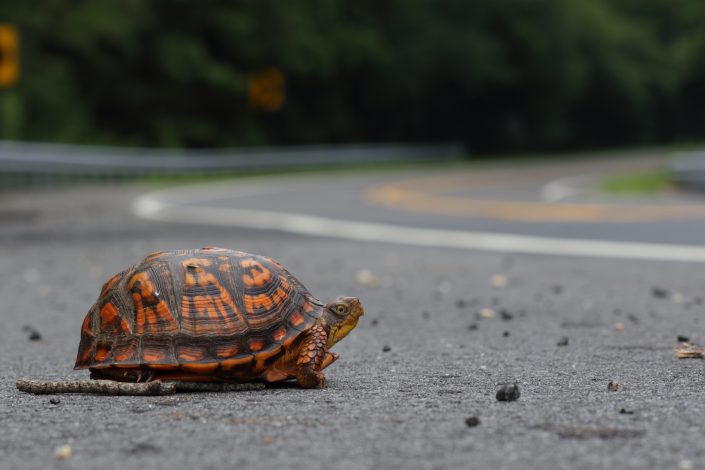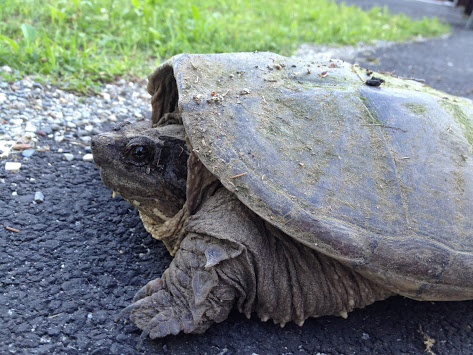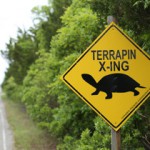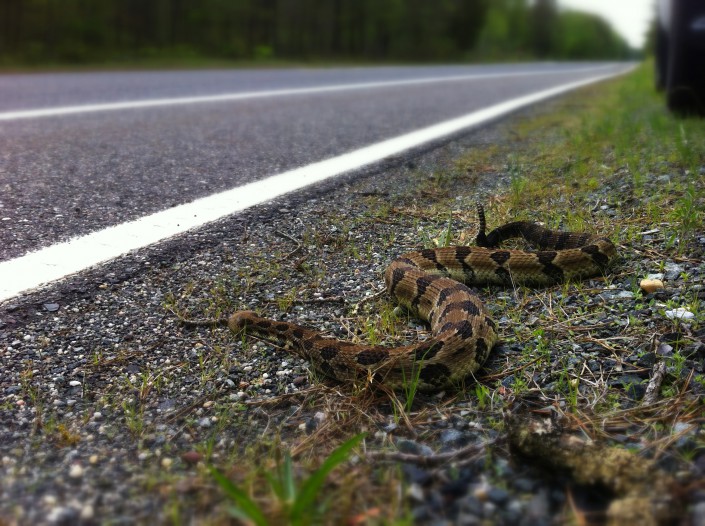Helping Turtles Off Roads
ROADS ARE DANGEROUS CROSSINGS FOR SLOW-MOVING TURTLES
by Kathleen Wadiak, CWF Intern
New Jersey is home to a number of turtle species, and this time of year, it is not uncommon to see some of them crossing the road. Slow movers on land, they are not well equipped to avoid the dangers of a busy roadway. If you come across a turtle on one of your streets, what should you do?

First of all, it is important to think of your own safety in addition to the turtle’s. Be sure to pull completely over to the side of the road and to put on your hazard lights. Check for cars, and make sure that you are visible to oncoming traffic.

If you want to move a turtle across the road, there are a few things to keep in mind. To start, remember to never lift a turtle by its tail or limbs, as this can cause serious injury. With most turtles, it is best to pick them up on either side of their shell between the forelimbs and hind limbs. Even small ones may squirm and kick, so try to keep a firm hold and carry them low to the ground to avoid a dangerous drop!
If the turtle is large with a long tail and pointed head, it is likely a snapping turtle and should be met with some extra caution. Try using a blunt object to gently coax it to the roadside, and be careful to avoid touching it anywhere within range of its bite, which can reach as far back as the middle of its body! If you think you need to carry it, hold it with two hands on the shell behind its hind legs, on either side of the tail.

Before you handle a turtle, notice which direction it’s facing. Move it to that side of the street, as it is likely determined to head to a certain site, and will end up in the road again if it is moved away from its goal. This is an especially important point with the many threatened and endangered turtle species in our state. Helping turtles in trouble across a roadway and leaving them to enjoy their natural environment is a great way to ensure that there will be more wild turtles to appreciate for years to come!
LEARN MORE
- Conserve Wildlife Foundation Field Guide: Bog Turtle
- Conserve Wildlife Foundation Field Guide: Eastern Box Turtle
- Conserve Wildlife Foundation Field Guide: Northern Diamondback Terrapin
- Conserve Wildlife Foundation Field Guide: Spotted Turtle
- Conserve Wildlife Foundation Field Guide: Wood Turtle
